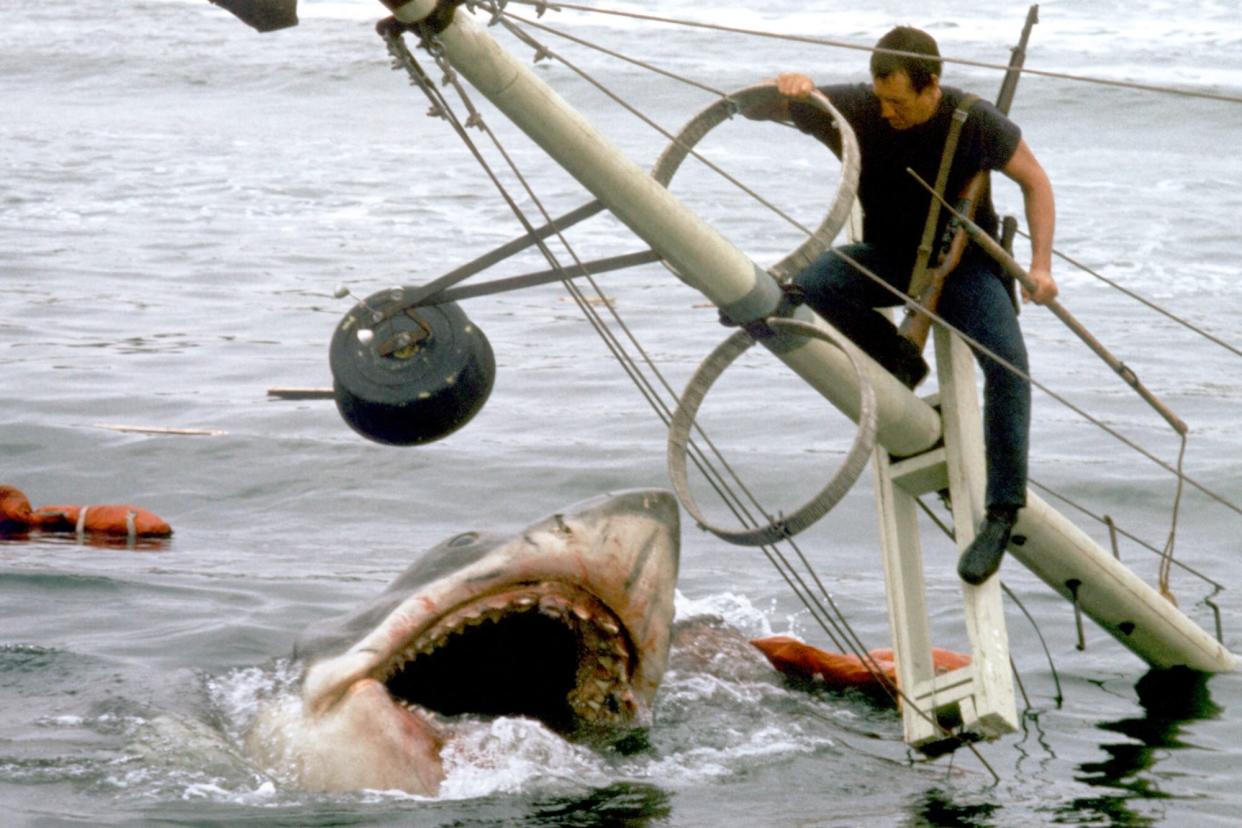Steven Spielberg says he regrets the harmful impact Jaws had on the shark population

Steven Spielberg said he regrets the harmful impact his classic 1975 film Jaws had on the shark population.
"I truly and to this day regret the decimation of the shark population because of the book and the film," the filmmaker said of the thriller and source material by author Peter Benchley during an interview with BBC Radio 4's Desert Island Discs on Sunday. "I really, truly regret that."
Spielberg also said he feared that the remaining shark population is upset with him when asked how he would feel about sharks circling if he were on the show's imaginary desert island. "That's one of the things I still fear," he said. "Not to get eaten by a shark, but that sharks are somehow mad at me for the feeding frenzy of crazy sports fishermen that happened after 1975."

Sunset Boulevard/Corbis via Getty Roy Scheider on set of 'Jaws'
The film is set in the fictional New England town of Amity Island that finds itself terrorized by a goliath of a great white shark. Richard Dreyfuss and Robert Shaw play an ichthyologist and ship captain who offer to help Roy Scheider's police chief capture the beast. Research has suggested that the film contributed to a population decline around the U.S.
"Jaws was a turning point for great white sharks," Oliver Crimmen, fish curator at the Natural History Museum in London, told BBC in 2015. "I actually saw a big change happen in the public and scientific perception of sharks when Peter Benchley's book Jaws was published and then subsequently made into a film."
George Burgess, director of the Florida Program for Shark Research, said "thousands" of fishers set out to catch trophy sharks following the thriller's debut. "You didn't have to have a fancy boat or gear," Burgess said. "An average Joe could catch big fish, and there was no remorse, since there was this mindset that they were man-killers."

Steve Granitz/FilmMagic Steven Spielberg
Benchley has also expressed remorse. "Knowing what I know now, I could never write that book today," the late author once said. "Sharks don't target human beings, and they certainly don't hold grudges." Benchley, who died in 2006 at the age of 65, would go on to become a shark and ocean advocate following the release of his novel.
Spielberg conceded that there was manipulation on his part in the radio interview. "A filmmaker must never manipulate the audience unless every single scene has a jack-in-the-box kind of scare," he said. "That's manipulation. I did that a couple of times in Poltergeist and I certainly did it once in Jaws, where the head comes out of the hole. That's okay, I confess that."
Want more movie news? Sign up for Entertainment Weekly's free newsletter to get the latest trailers, celebrity interviews, film reviews, and more.
Related content:

 Yahoo News
Yahoo News 
